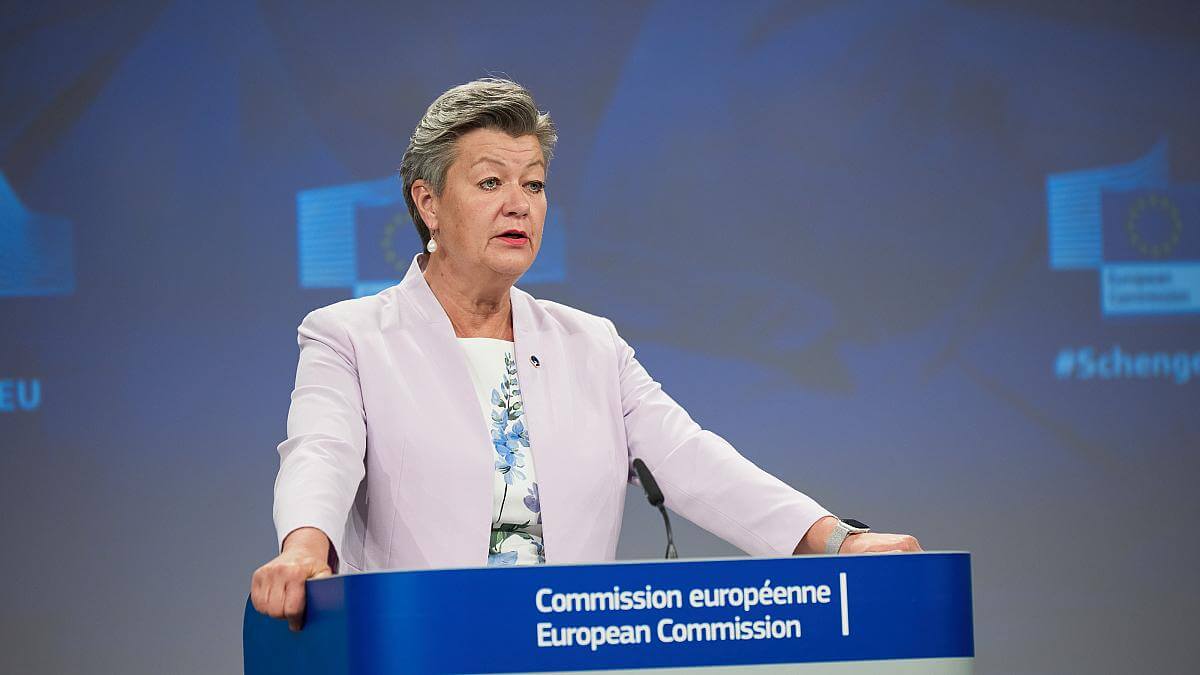European Commissioner for Home Affairs Yiva Johansson launched a plan to reform the Schengen area to prepare for cross-border travel in a post-pandemic world. The strategy aims to make the region “stronger and more resilient” and is grounded in three pillars: “external borders, alternates, and governance.”
While presenting the plan, Johansson said, “I think that it's important that member states have the possibility to temporarily reintroduce border controls when there are a severe threat towards that specific country.” However, she added that any such measure must be “a measure of last resort.” Nevertheless, she said that it was critical to introduce such measures to account for situations like the current pandemic.
Moreover, the Commission recommended the establishment of a common police cooperation code. Johansson reasoned that this would allow the bloc to update and modernise its resource and knowledge sharing for DNA, fingerprints, and vehicle registrations. In addition, she also recommended the use of the advance passenger information system, which monitors passengers entering the Schengen area, for intra-Schengen travel too.
According to the plan, the Frontex, which is the European Union’s border control agency, will retain the responsibility of managing the bloc’s external borders. Johansson said that to achieve unrestricted internal movement, it was crucial that all members of the bloc remained committed to protecting the external borders.
This move is likely to instigate some criticism, specifically in light of the ongoing criticism of Frontex’s handling of migrants. In March, Members of the European Parliament’s Budgetary Control Committee voted against approving the budget for Frontex, the bloc’s border and coast guard agency. They agreed to postpone the approval “until additional clarifications are brought on a series of issues” including alleged rights violations by the Frontex staff.
The Schengen region was established in 1995 and currently houses over 400 million citizens. As a result of this, there are no checks and controls restricting movement across the region, which includes 22 members of the European Union, Iceland, Liechtenstein, Norway, Switzerland, and several other micro states.
The COVID-19 crisis shook the integrity of the Schengen region, with a large number of countries imposing travel restrictions. Following the onset of the first wave of the pandemic, countries in the region swiftly restricted inter-state travel, raising unrest amongst several individuals and businesses who relied on free movement across borders. However, while these moves while heavily criticised, they were justified under the region’s legal framework, which allows for exceptions on free movement in a situation of “threat to public policy or internal security.” In fact, to date, six countries—Finland, Iceland, Norway, Denmark, Hungary, and France—continue to have controls on movement in place. This has resulted in a conversation about the need to reform the Schengen regulations, which in turn resulted in Wednesday’s announcement.
Before the COVID-19 pandemic, the migrant crisis in the European Union challenged free movement across the Schengen region. During this period, several countries introduced border checks to restrict the free movement of the immigrants that had arrived on the shores of the bloc. Consequently, six countries, including Norway, Austria, Germany, Sweden, Denmark, and France, have continued to restrict movement in case of prospective terrorist or criminal threats. Hence, with the dual-threat posed by the COVID-19 crisis and the migrant issue, the reforms are likely to be welcomed by most members.
European Commission Outlines Plan to Reform Schengen Area in Post-COVID Era
The European Commission is looking to “temporarily reintroduce border controls” within the Schengen area.
June 3, 2021

SOURCE: EURONEWS
